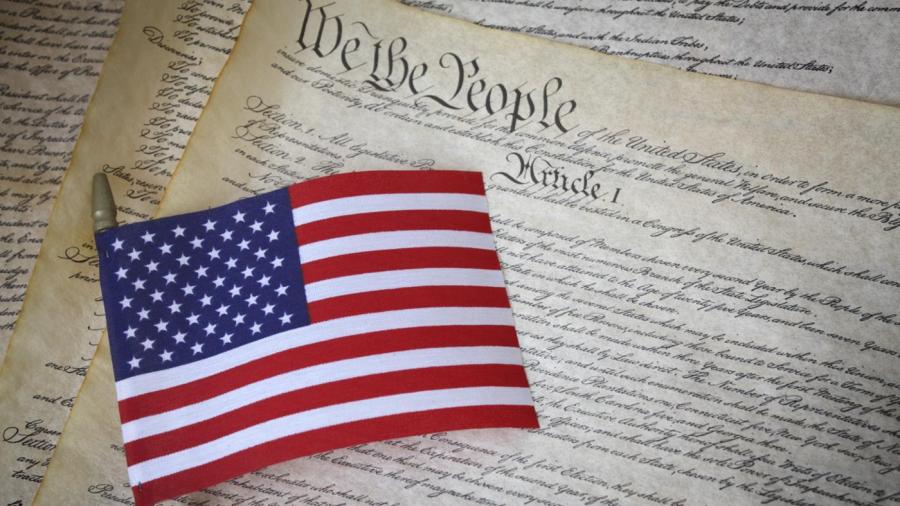What Does “Provide for the Common Defense” Mean?

The phrase “provide for the common defense,” which is written in the preamble of the U.S. Constitution, grants the federal government authority to maintain a military for the defense and protection of its people.
Article I of the U.S. Constitution grants Congress the ability to “raise and support armies” and “provide and maintain a navy.” Article II appoints the president to be commander-in-chief of the army and gives him or her the right to declare war. These statements ensure that national defense is a priority of the federal government. Also, it gives the government the responsibility of keeping peace by maintaining a state-regulated military. In protecting the nation with a military, the government upholds its citizens’ inalienable rights of life, liberty and the pursuit of happiness that are established in the Declaration of Independence.
Role of the Founding Fathers
The concept for federal defense came about with the Founding Fathers’ unhappiness with government rule under the Articles of Confederation, which guided the 13 colonies. Defense was initially left to states, but the Founding Fathers realized the country was vulnerable, and that it could only properly respond to domestic and international threats with a strong, cohesive military. To make common defense a national priority without giving too much power to one branch of government, they divided defense duties between Congress and the president. The intent was to create a military that could protect the American public, but that would not be so powerful that it encroached on governmental affairs.
The Founding Fathers had a strong distrust of centralized government and intended the Constitution to keep the U.S. army and navy as civilian-governed. Therefore, in addition to granting the president the power to control the army and oversee its operations, the Constitution appoints the president as the nation’s head diplomat, which means he is expected to promote peace outside of wartime.
U.S. Military Evolution
In addition to dividing military responsibilities between Congress and the president, the Constitution provides the U.S. military should be strong, even in times of peace. This sentiment was echoed by President George Washington, who said the fastest way to achieve peace was to be always prepared for war. He sought substantial amounts of money for military spending, which has been emulated by several successive presidents. Since Congress does not specify how much money the government can spend in defense of its people, each president and Congress can decide on a military budget. The Constitution also permits the army and navy to adapt new technologies and modernize over time to best defend the American public.
The right to defend its people with an army is one of several powers reserved for the federal government. The government is also tasked with other duties that affect the health, safety and well-being of its citizens. Additional federal powers include the ability to make and circulate money, the right to punish citizens for behaviors not punishable by state governments, the right to conserve the nation’s natural resources and protect its environment, and to regulate public health and workplace safety. The government can also define and punish criminal actions that involve an attack on U.S. planes or the unauthorized flight of foreign aircraft into U.S. airspace.





